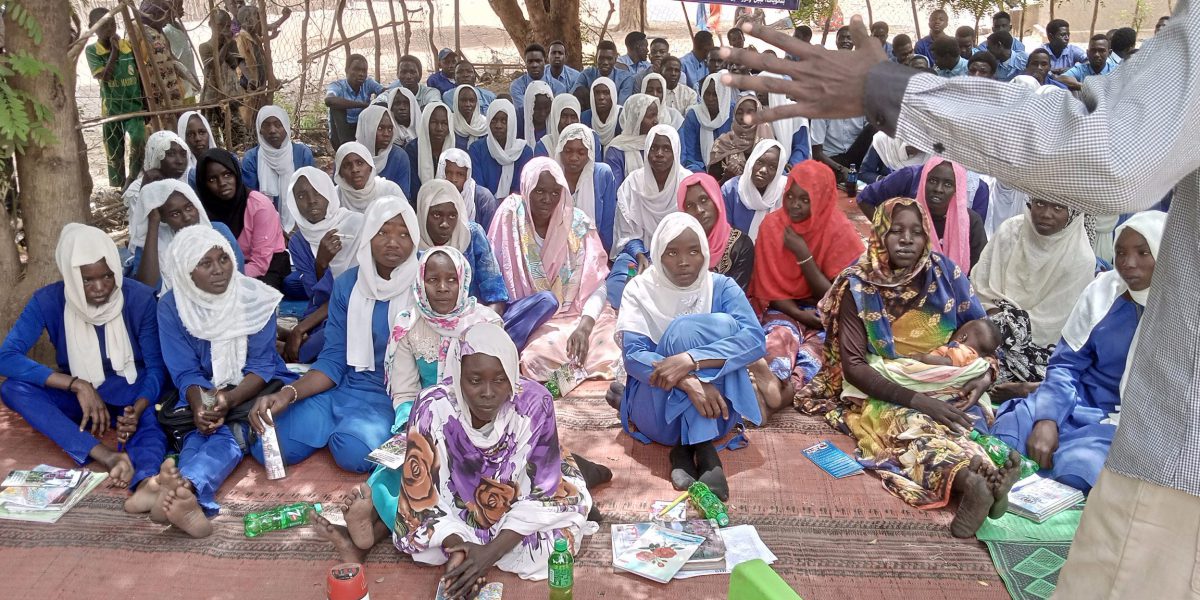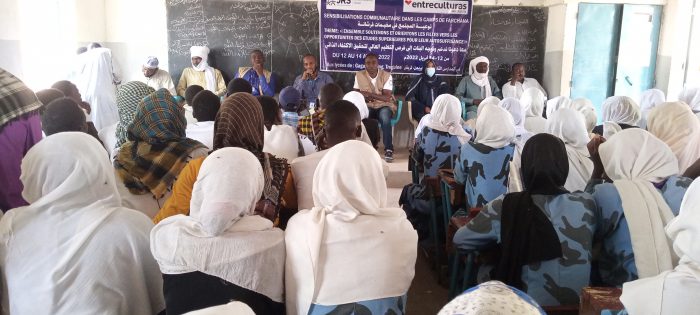JRS Chad: Raising Awareness for Refugee Girls’ Education
02 June 2022

Last year, Jesuit Refugee Service (JRS) Chad, in collaboration with the Spanish NGO Entreculturas, launched a scholarship for five refugee girls from Sudan who are living in Chad to obtain a teaching diploma at the Superior Normal School of Abeche (ENSA).
After their first academic year, two of the girls (Sima from Djabal camp and Zenab from Gaga camp) joined JRS in organizing an awareness campaign to encourage other girls to pursue their education as well. This campaign, which ran April 13-22, 2022, was held at ENSA as well as in six camps in eastern Chad: Goz-Amir, Djabal, Farchana, Bredjing, Tréguine and Gaga. Both Sima and Zenab led in-person awareness-raising activities at ENSA.
Through poetry, songs, speeches, and community participation, the campaign focused on the rights and duties of girls; the advantages and opportunities of studies for girls; and adequate menstrual hygiene management (crucial to ensure regular attendance at school for girls). It also highlighted the importance of preventing early and forced marriage and unwanted pregnancies, which lead to the high rates of girls dropping out of their studies in Chad.
Since the next date of Baccalaureate exams, which are required to access post-secondary education in Chad, is in July, the campaign also focused on informing girls who are in their final year of high school about scholarship opportunities.

Another young refugee, Fatimé, covered the activities in Gaga, Farchana, Tréguine et Bredjing. Aisha, Sima’s mother, was present in Goz-Amir and Djabal, accompanied by another refugee, Hanane. As a preschool director in the camp, Aisha is a strong advocate for education and has participated in several advocacy activities with Entreculturas and other organizations in the past. In her speech to participants, Aisha urged the students to avoid marriage and invest in their studies. She also advised young people to organize themselves into agriculture associations, which could finance at least one person’s education per year.



